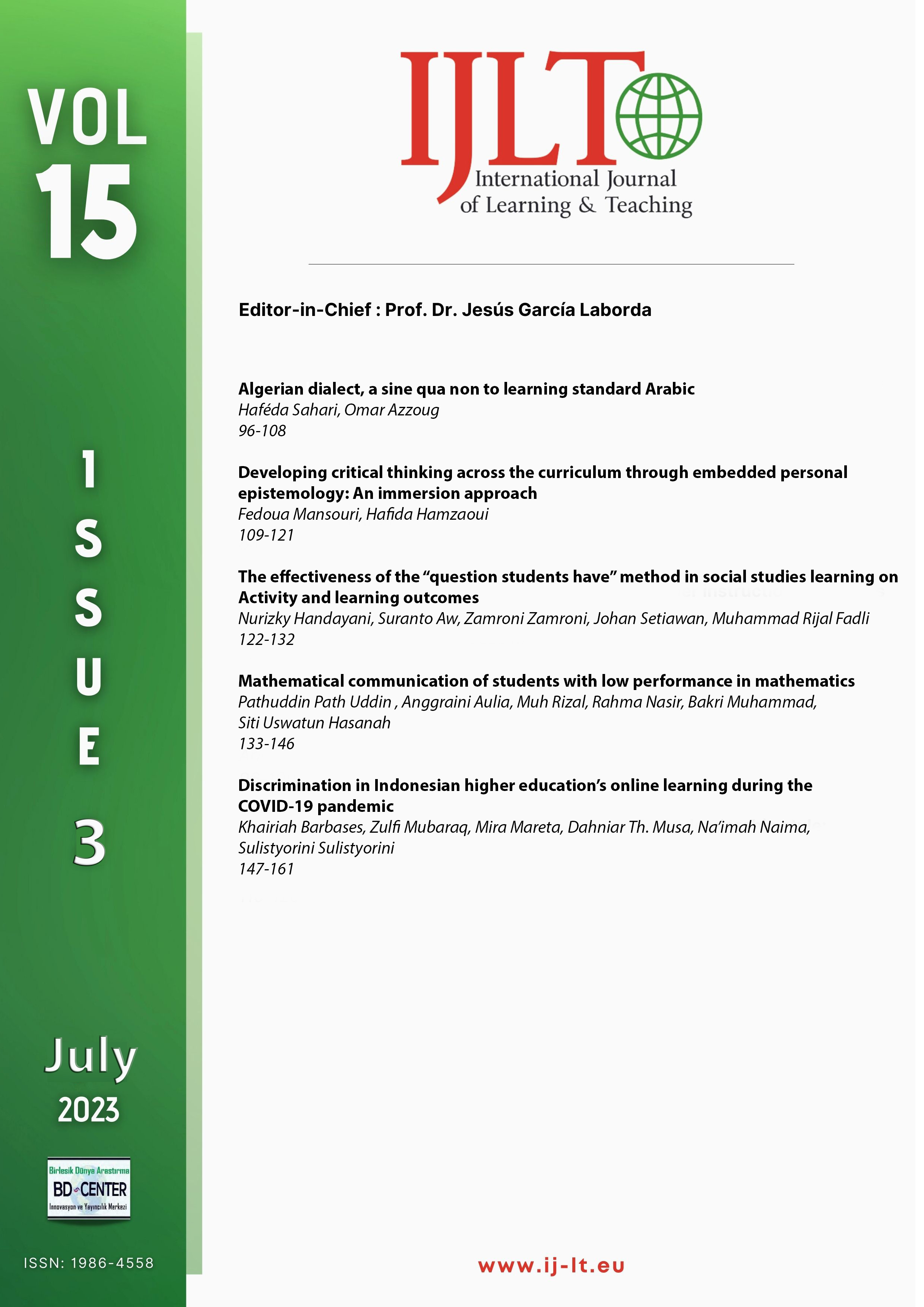Developing critical thinking across the curriculum through embedded personal epistemology: An immersion approach
Main Article Content
Abstract
In the present-day information age, it has become more crucial than ever to be equipped with an intellectual compass that can help an individual to navigate the overwhelming deluge of information, messages, and discourses. The efficiency of higher education in teaching students to think critically is debatable as most institutions treat these skills in isolation from the rest of educational goals. This paper explored a holistic approach to enhancing critical thinking across the curriculum. It involves the promotion of learners’ epistemological beliefs. The study explored a potential causal relationship between critical thinking skills and epistemological beliefs among undergraduates at the Department of English at Khenchela University, Algeria. In a quasi-experimental design, sophomores received a two-semester treatment instruction designed to promote their critical thinking skills. These latter were tested in pre-and post-tests to evaluate the effect of the course. T-test results revealed a significant change in the experimental group’s post-test means as compared to their critical thinking pre-tests.
Keywords: Critical thinking; epistemic climate; higher education; immersion; personal epistemology.
Downloads
Article Details

This work is licensed under a Creative Commons Attribution-NonCommercial-NoDerivatives 4.0 International License.
Authors who publish with this journal agree to the following terms:
- Authors retain copyright and grant the journal right of first publication with the work simultaneously licensed under a Creative Commons Attribution License that allows others to share the work with an acknowledgement of the work's authorship and initial publication in this journal.
- Authors are able to enter into separate, additional contractual arrangements for the non-exclusive distribution of the journal's published version of the work (e.g., post it to an institutional repository or publish it in a book), with an acknowledgement of its initial publication in this journal.
- Authors are permitted and encouraged to post their work online (e.g., in institutional repositories or on their website) prior to and during the submission process, as it can lead to productive exchanges, as well as earlier and greater citation of published work (SeeThe Effect of Open Access).
